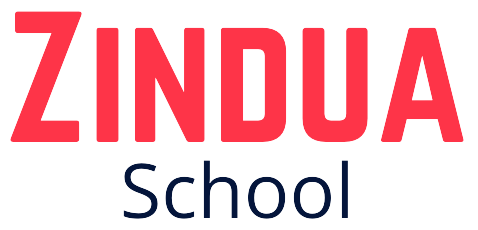Coding Bootcamps vs University Degree vs Online Courses in 2025 – Choose the Best Option
Congratulations on finishing high school! If technology, web development, app creation, data analysis, or artificial intelligence sparks your interest, you’re in the right place. But how do you figure out the best path to take? Should you go for a traditional university degree, dive into a coding bootcamp, or take the self-paced route with online courses?
In this blog, we’re going to explore the three main options available: coding bootcamps, university degrees, and online courses. This way, you can choose the one that aligns best with your goals, learning style, budget, and timeline.
Why Your Learning Path Matters
Diving into the world of technology goes beyond just picking a course; it’s about dedicating your time, money, and energy to something that will shape your future career. What’s considered the “right” choice varies from one person to another and relies on:
- Your Timeline – Are you eager to start working right away, or do you have the flexibility to take part in a more extended program?
- Your Career Goals – Do you prefer to build a broad base in computer science, or are you looking to hone in on a specific skill set that will help you land a job quickly?
- Support System – Do you think you’ll need some mentorship and peer support, or are you confident you can stay motivated and disciplined all on your own?
- Your Learning Style – Do you thrive in a structured classroom setting, or do you find yourself more engaged with project-based learning?
- Your Budget – what’s the amount you can comfortably set aside for tuition, living costs, and any necessary expenses?
Keeping these questions in mind, let’s dive into each option, starting with the fastest option: coding boot camps.
Coding Bootcamps: Learn Fast, Get Job-Ready
A coding bootcamp is a fast-paced program designed to equip you with practical skills in a specific tech field, like web development, mobile apps, or data science, all in just a few weeks or months. Take Zindua School, for instance; they offer a 21-week Full-Time Software Development Bootcamp that features live lectures, hands-on assignments, and real-world projects. Plus, if you need more flexibility, they have a Part-Time option that lets you balance your studies with other commitments.
Pros of Coding Bootcamps
- Project-Based Learning – You’ll spend most of your time building websites, creating apps, or diving into data analysis. This hands-on experience will make your portfolio truly impressive.
- Personalized Learning – With smaller class sizes and direct access to technical mentors, bootcamps often offer tailored feedback and support that’s just right for you.
- Cost-Effective Compared to a Degree – A 12-week bootcamp can sometimes cost less than a single year at a private university, making it a smart choice.
- Speed – Most bootcamps run for about 3 to 6 months. If you’re eager to land an entry-level developer job quickly, this is definitely the way to go.
- Community and Accountability – You’ll be part of a cohort, surrounded by fellow students, so you won’t feel like you’re going through this journey alone. This built-in support system can really help keep you motivated.
- Career Support – Reputable bootcamps offer job placement assistance, resume reviews, interview prep, and connections to hiring partners to help you kickstart your career.
Cons of Coding Bootcamps
- Bootcamps are incredibly intense – you can expect to put in 40-60 hours a week with lectures, coding challenges, assignments, and group projects. If you’re new to coding, it might feel a bit overwhelming at first.
- They focus more on “how to build it” instead of diving into “why it works.” You’ll quickly pick up frameworks like React and Django, but you might not get a chance to explore the deeper concepts of computer science, such as operating systems.
Bootcamps are perfect for those just starting out, no coding experience needed! If you’re curious about the top coding bootcamps in Kenya for 2025, check this out.
University Degrees: The Traditional Route
Diving into a Bachelor’s degree at a Kenyan university like the University of Nairobi means you’re signing up for an exciting three to four-year adventure.
Pros of University Degrees
- Recognition & Credibility – Employers really value degrees, especially those from well-known companies and government institutions.
- Strong Theoretical Foundation -You’ll explore more complex ideas like operating systems. This solid groundwork will make it easier for you to pick up new technologies down the line.
- Campus Experience & Networking – Beyond just attending lectures, you’ll get involved in clubs, hackathons, and tech fairs. These networking opportunities can lead to internships and valuable career recommendations.
Cons of University Degrees
- Committing to 3 to 4 years of study is not easy. In fast-moving fields like tech, you might worry that by the time you graduate, the skills you’ve learned could already be outdated.
- There’s the financial side of things – tuition, housing, and even meals can really add up, even at public universities. Sure, there are scholarships and government loans like HELB, but the financial pressure is definitely something to consider.
- The rigidity of fixed lecture schedules, mandatory general education courses, and large class sizes can make it tough to dive deep into technology.
- The risk of an outdated curriculum – universities often find it challenging to keep their courses up to date, which means you could spend a whole semester learning a programming language that’s already losing its relevance in the job market.
Online Courses: Flexible & Affordable
Online courses come in all sorts of styles:
- Subscription Platforms – Think of sites like Pluralsight, Udacity, and Codecademy which focus on technical skills and often feature interactive coding environments to keep you engaged.
- Video-Based Marketplaces -Platforms like Udemy and Skillshare offer a treasure trove of affordable courses taught by independent educators, covering everything from web development to machine learning.
- Massive Open Online Courses (MOOCs) – Websites such as Coursera, edX, and FutureLearn team up with top universities around the world to deliver well-structured programs.
- Free Resources – If you’re looking for free options, check out freeCodeCamp, Khan Academy, and the Mozilla Developer Network (MDN) all of which provide comprehensive courses at no cost.
Pros of Online Courses
- Flexibility and convenience are key – learn whenever and wherever suits you best! This is perfect for those juggling family commitments, working part-time, or wanting to explore different fields before fully diving in.
- Cost is another big plus – many platforms offer free courses or trial periods. While certificate programs might come with a fee, they’re still a lot more affordable than bootcamps or degrees.
- Wide Variety – You can dive into just about any topic that interests you!
- With self-paced learning, you have the freedom to rewind lectures, skip over what you already know, or spend extra time on the tricky stuff.
Cons of Online Courses
- Self-discipline is key – Without deadlines to keep you focused, it’s all too easy to fall behind. Procrastination can really get in the way.
- Limited Interaction and Support – While some courses offer peer forums or Q&A sections, you might not get the same level of guidance as you would in a bootcamp or university setting.
- Certificates vs. Accredited Degrees – Sure, an Udacity NanoDegree looks great on LinkedIn, but some companies still lean towards candidates with a traditional university degree.
How to Choose the Right Tech Learning Path: A Simple Guide
- Get to know your interests and learning style.
- Do you enjoy diving into theory, math, and research? A university degree could be a great fit for you.
- Prefer a hands-on approach to learning? A bootcamp might be just what you need.
- Need some flexibility because of work or family commitments? Online classes could work perfectly with your schedule.
- Define Your Goals
- Dreaming of a tech career in just six months? Think about enrolling in a bootcamp
- Looking for a strong academic foundation? A university degree is the way to go.
- Curious about different tech fields? Try blending online courses with bootcamp workshops.
- Consider your Budget and Time
- On a tight budget and need quick results? Bootcamps can help you secure a job faster.
- Ready to invest more time and money? A university might offer long-term benefits.
- Searching for affordable and flexible options? Look into free or low-cost online courses.
- Think about the support you need
- Want some structure and guidance? Bootcamps offer all of that.
- Interested in research, professors, and campus life? A university can provide those experiences.
- Prefer to learn independently? Online courses can complement a solid self-study routine.
- Conduct Your Research
- Check out alumni reviews.
- Look into job placement or graduation employment rates.
- Before committing, you can try out free previews or modules.
Conclusion
Choosing between a coding bootcamp, a university degree, or online courses really comes down to what you want to achieve, how you learn best, and your current life situation. If you thrive in a fast-paced, hands-on environment, a bootcamp might be your best bet. On the other hand, if you prefer a deep dive into subjects, a university degree could be the way to go. And let’s not forget about the flexibility that online learning offers! The most important thing is to take that first step. Sure, your journey in tech might have its ups and downs, but with the right support, there’s no limit to what you can achieve.
At Zindua School, we’re dedicated to supporting you on your journey. Our bootcamps in Software Development and Data Science are designed with beginners in mind, featuring live sessions, hands-on projects, and personalized mentorship to guide you every step of the way. Ready to dive in? Check out our programs and submit your application today! Are you interested in the tech world? Learn more about software development and data science.







